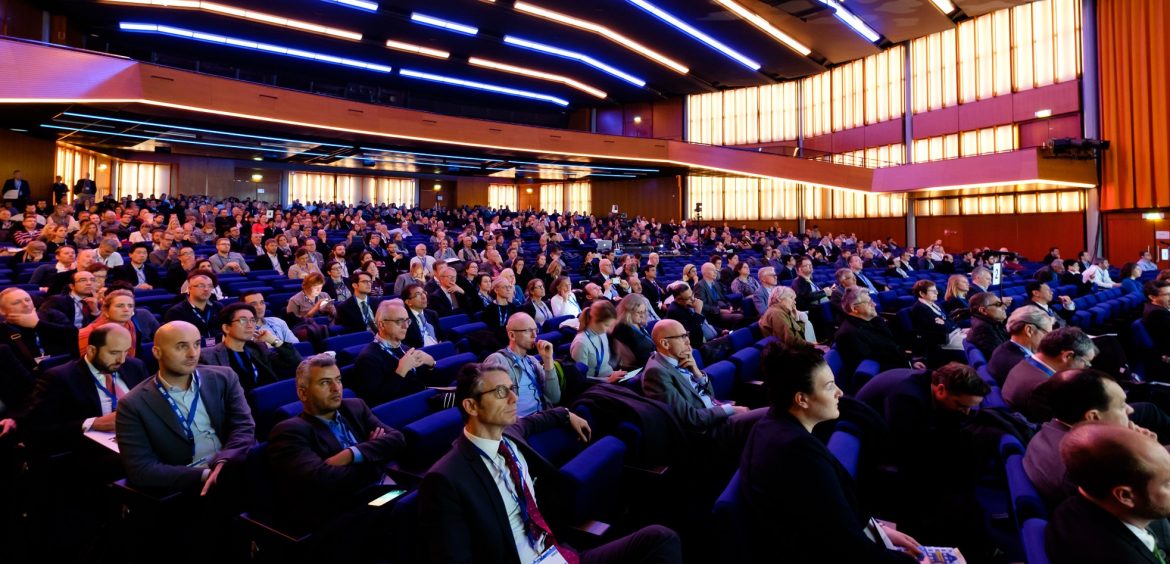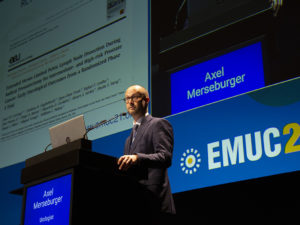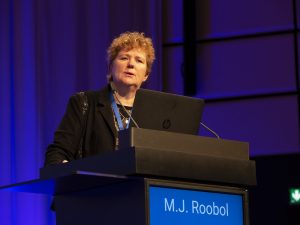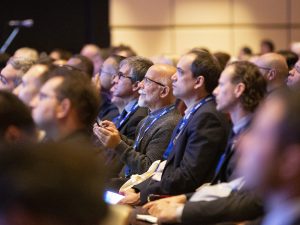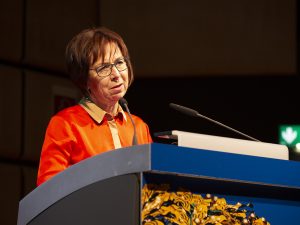A multidisciplinary approach to the treatment of urological cancers may have become more commonplace over the past decade, but young professionals still benefit from having a voice when the scientific programme for EMUC19 is made.
The 11th European Multidisciplinary Congress on Urological Cancers (EMUC19) is coming to Vienna on November 14-17. The meeting is co-organised by the European Association of Urology (EAU), the European Society for Medical Oncology (ESMO) and European SocieTy for Radiotherapy & Oncology (ESTRO). Also on November 14th, the EAU Section of Urological Imaging is holding its 8th meeting, ESUI19. Abstract submission for EMUC19 is currently open, until July 1st.
The organizing parties have appointed representatives from their ‘young professionals’ wings to sit on the EMUC19 scientific committee to ensure that the scientific programme reflects their interests and professional requirements. We spoke to each representative about their role and their views on the important topics.
A voice for young professionals
Dr. Evanguelos Xylinas (Paris, FR) is Associate Professor of Urology at Bichat Claude Bernard Hospital. He represents the EAU’s Young Academic Urologists (YAU) on the EMUC19 scientific committee. Dr. Xylinas describes his role as proposing speakers and topics to be covered on behalf of YAU.
Jean-Emmanuel Bibault (Stanford, CA, USA) is a radiation oncology Associate Professor from Paris currently doing a postdoctoral research fellowship in the Laboratory of Artificial Intelligence for Medicine and Biomedical Physics, at Stanford University School of Medicine: “I’m involved in EMUC19 as a member of ESTRO’s Young Committee. I help design the programme of the annual meeting, particularly on the sessions where radiation oncology is relevant.”
Dr. Christoph Oing is on the EMUC19 Scientific Committee as a member of the ESMO’s Young Oncologist Committee (YOC). He is specialised in Internal Medicine, Haematology and Medical Oncology. He is a clinical fellow at the Dept of Oncology, Haematology and Bone Marrow Transplantation with Division of Pneumology, University Medical Center Hamburg-Eppendorf (DE), among several other affiliations.
“I have been invited to participate in the EMUC19 scientific programme committee as ESMO Young Oncologists Committee (YOC) representative to establish involvement and address interests of young Medical Oncology professionals in the upcoming EMUC conferences. As such, the YOC contributes to scientific abstract reviewing with 5 supporters and I have been invited to actively participate in the programme including a case presentation on testicular cancer and a discussion on localised prostate cancer.”
Important Topics
Asked about which topics are of particular interest to young onco-urology professionals, Xylinas (YAU) points to state-of-the-art lectures. “We like these for giving an overview of the current evidence on a topic. Sessions that address the current guidelines are popular, as are clinical cases discussion by key opinion leaders.”
Bibault (ESTRO YC) considers the topics that will define the standard of care and best practice for young professionals in radiation oncology in prostate cancer and bladder cancer the most important. “When should you consider radiotherapy, what volumes, what dosage? How does radiation therapy can be combined and coordinated with surgery and systemic treatments?” These and more will be part of the three-day scientific programme.
“Both well-structured introductions to current standards and discussion of areas with lacking evidence or practice-changing, up-to-date developments are highly relevant for young professionals to increase their knowledge and confidence in GU cancer care,” says Oing (ESMO YOC).
“Rare cancers, i.e. testicular and penile cancer, will are also important to address, as individual experience with such cancers may be scarce. In addition, case discussions are of particular importance to provide practical advice and illustrate the beneficial impact of multidisciplinary GU cancer care.”
Multidisciplinary reality
Oing also sees a tendency in genitourinary oncology: “It is rapidly evolving irrespective of the subspecialty involved in GU cancer care. The multidisciplinary approach of EMUC, with its multifaceted expert scientific committee and conference structure is outstanding and a key to success in sharing knowledge on current standards and future developments for both the attendees and faculty.”
Bibault concurs: “Multidisciplinarity is essential in uro-oncology if we want to give the best possible treatment to our patients. We absolutely need to work, discuss each case with our friends and colleagues from surgery and medical oncology. Comprehensive cancer centers are essential in that setting.”
Xylinas: “I think oncology and onco-urology in particular equals multidisciplinarity. The aim is to provide, all together, the best care for our patients.”
EMUC19 has a comprehensive scientific programme featuring expert speakers from all onco-urology-related fields. The ESUI meeting, as well as ESU courses and the ESUP Symposium are all optional elements of the programme on November 14th. Discounted registration fees are available for EAU, ESMO and ESTRO members, as well as residents.

